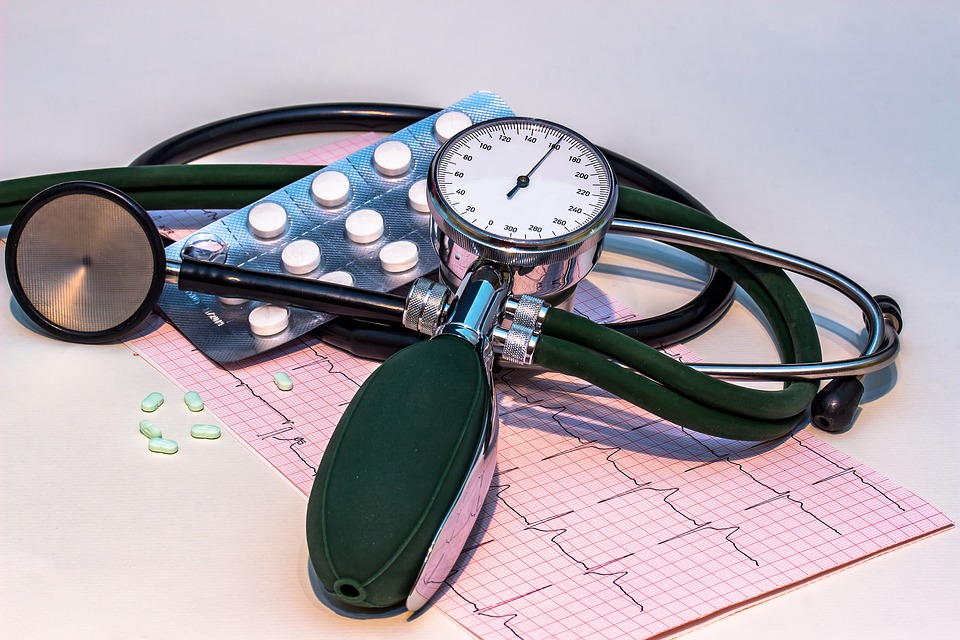How To Lower Your High Blood Pressure Risk

High blood pressure – or hypertension – affects approximately one in four adults. Although it can be dangerous, increasing your risk of heart attacks and strokes, it rarely has any symptoms. Usually, the only way to know if you have hypertension is to have your blood pressure checked.
Hypertension puts a strain on your heart, blood vessels and organs such as the eyes, kidneys, and brain. Risks include kidney disease, heart failure, coronary heart disease, strokes and aortic aneurysms. Lowering your blood pressure can reduce the risks of you suffering these health problems later in life.
Some techniques can help to reduce your blood pressure. An ideal way to lower it is through lifestyle changes and education about the causes and risks of having a blood pressure that is higher than normal.
Lifestyle Changes
Not only can lifestyle changes lower blood pressure that has been diagnosed as high, but they can also help to reduce the risks of someone being diagnosed with elevated blood pressure in the first place.
Reducing the amount of salt you eat and having a healthy diet can help to lower blood pressure. Too much salt can raise the number of sodium molecules in your bloodstream. This reduces the ability of your kidneys to filter the water and remove urine. The result of this is raised blood pressure, due to the extra fluid in the blood and the strain on the delicate blood vessels in the kidneys.
Reducing the amount of alcohol you drink can help to reduce blood pressure. Drinking alcohol temporarily increases blood pressure, with long-term binges resulting in long-term increases. Additionally, the extra pressure on the kidneys to filter blood that contains a high level of alcohol can, again, raise blood pressure.
Losing weight has the highest impact on reducing your blood pressure. Being overweight or obese increases your risks of developing hypertension. Losing just a small amount of weight can both reduce your risks of developing the condition, and contribute to a drop in blood pressure in those who are diagnosed with hypertension.
Exercise will cause blood pressure while you are physically active. However, the long-term benefits far outweigh this short-term spike in blood pressure. Exercise helps to strengthen your heart, resulting in it eventually not having to work so hard to pump blood around your body. This reduces the pressure on both your heart and arteries, reducing blood pressure often as much as some blood pressure medications.
Cutting down or stopping smoking is one of the single best things you can do for your health. Nicotine in cigarette smoke raises blood pressures, narrows arteries and hardens their walls, and makes your blood thicker and more likely to clot. The narrowing of the arteries results in the heart having to work harder to pump blood through the arteries, raising blood pressure. Giving up smoking is likely to result in a marked decrease in high blood pressure.
Medications
Medications can help to lower blood pressure. These usually need to be taken once or twice per day to maintain the lowered blood pressure. There are several different blood pressure medications, including ACE inhibitors, beta-blockers, diuretics and calcium channel blockers. Your age and degree of high blood pressure will determine what type of medication you are prescribed; some people may be given more than one type of medicine.
Akshay Sharma
Latest posts by Akshay Sharma (see all)
- Best Single Door Fridge Models Of 2025 Features, Energy Ratings & Price Guide - December 22, 2025
- 5 Critical Things You Must Know for Professional Custom Badge Quality: An Expert’s Guide - November 3, 2025
- Are You Using a Loan Calculator for Second Hand Car Rightly? - October 13, 2025
- Round Steel Tanks: Long-Term Solutions for Water Storage - September 19, 2025
- Embrace the Culture: Syna World Hoodie and Syna World Tracksuit UK - September 13, 2025
